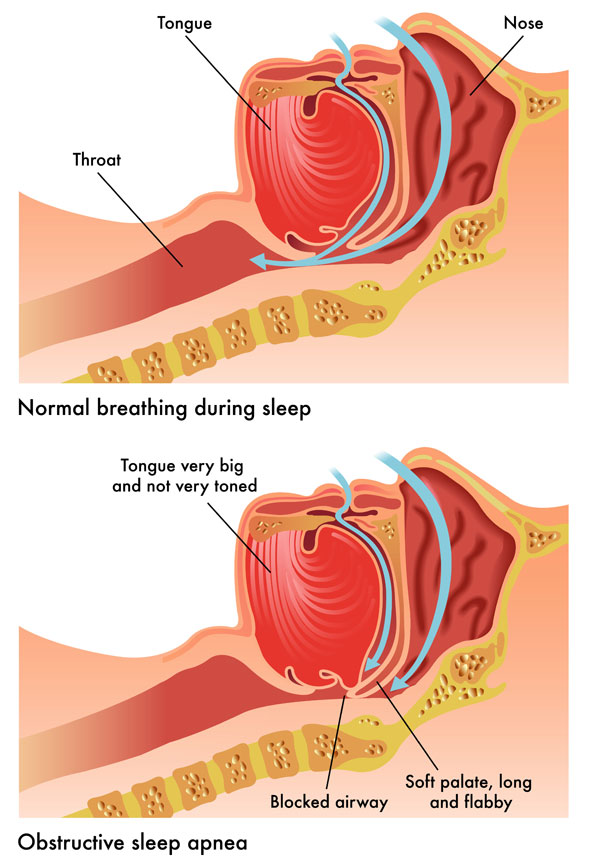 People with obstructive sleep apnea (OSA) have disrupted sleep and low blood oxygen levels. When obstructive sleep apnea occurs, the tongue is sucked against the back of the throat. This blocks the upper airway and airflow stops. When the oxygen level in the brain becomes low enough, the sleeper partially awakens, the obstruction in the throat clears, and the flow of air starts again, usually with a loud gasp.
People with obstructive sleep apnea (OSA) have disrupted sleep and low blood oxygen levels. When obstructive sleep apnea occurs, the tongue is sucked against the back of the throat. This blocks the upper airway and airflow stops. When the oxygen level in the brain becomes low enough, the sleeper partially awakens, the obstruction in the throat clears, and the flow of air starts again, usually with a loud gasp.
Repeated cycles of decreased oxygenation lead to very serious cardiovascular problems. Additionally, these individuals suffer from excessive daytime sleepiness, depression, and loss of concentration.
Some patients have obstructions that are less severe called Upper Airway Resistance Syndrome (UARS). In either case, the individuals suffer many of the same symptoms. The first step in treatment resides in recognition of the symptoms and seeking appropriate consultation.
Dental appliances can be prescribed for mild sleep disordered breathing, but they are not effective for everyone with OSA. Treatment for more severe sleep apnea may consist of using a nasal CPAP (continuous positive air pressure) machine that delivers pressurized oxygen through a nasal mask to limit obstruction at night.
OSA is a very serious condition that needs careful attention and treatment. Most major medical plans offer coverage for diagnosis and treatment.
